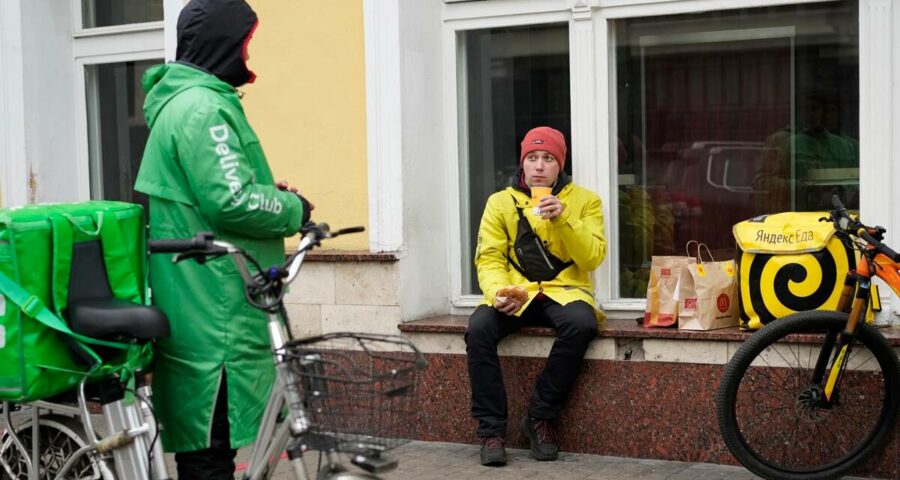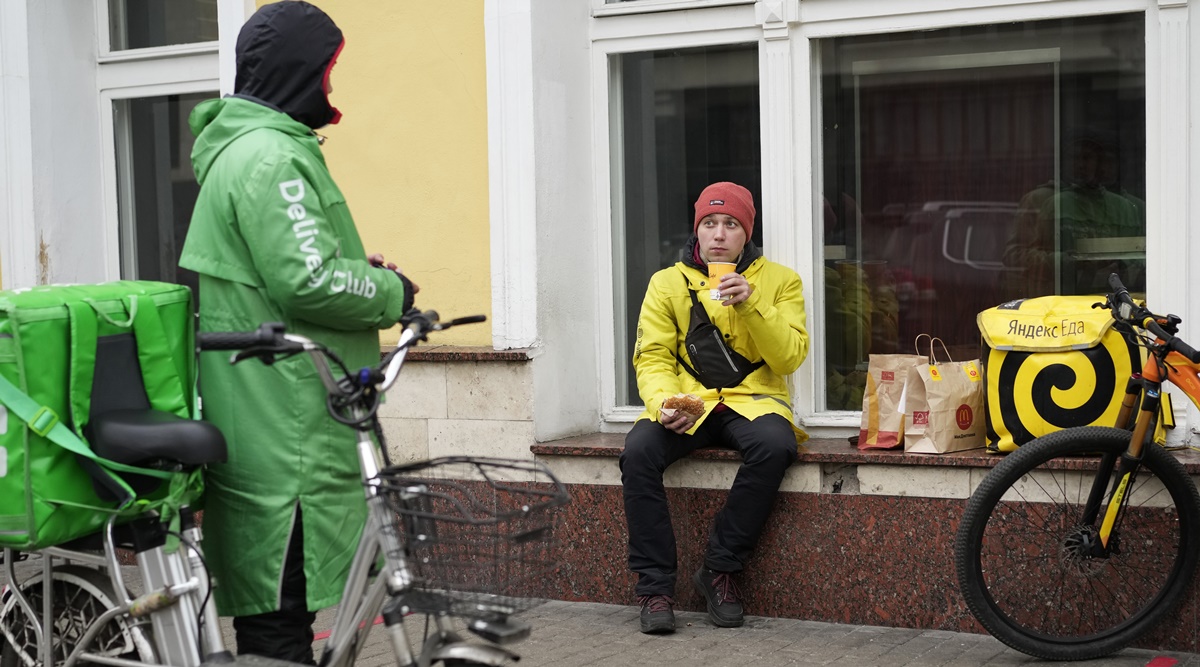President Vladimir Putin has largely left it to regional governors to implement pandemic-related restrictions but has recently taken a more active role, ordering that all nonessential workers stay home from Oct. 30 until Nov. 7.
Written by Valerie Hopkins
Russia announced a record number of new infections Saturday before a “nonworking week” that authorities hope will slow the spread of the coronavirus.
Authorities reported 40,251 new infections in the preceding 24 hours, a record, and 1,160 deaths. More than 237,380 have died of COVID-19.
President Vladimir Putin has largely left it to regional governors to implement pandemic-related restrictions but has recently taken a more active role, ordering that all nonessential workers stay home from Oct. 30 until Nov. 7.
https://youtube.com/watch?v=51Z8-GypjF4%3Fversion%3D3%26%23038%3Brel%3D1%26%23038%3Bshowsearch%3D0%26%23038%3Bshowinfo%3D1%26%23038%3Biv_load_policy%3D1%26%23038%3Bfs%3D1%26%23038%3Bhl%3Den-US%26%23038%3Bautohide%3D2%26%23038%3Bwmode%3Dtransparent
Moscow, with 7,267 new infections in the past 24 hours, has been an epicenter of the pandemic. The city began a light lockdown two days earlier. Schools, kindergartens, nonessential shops, restaurants, bars and gyms are closed, while museums and theaters remain open at 50% capacity.
As in other regions, the health care system is being put to the test.
“Health care is working to its limits,” Moscow’s regional governor, Andrei Vorobiev, told the government network Channel One earlier in the week.
He noted that more than 500 people were on ventilators, also a record number. He said that 80% of the 10,000 hospitalized COVID-19 patients had not been vaccinated.
Anna Popova, the head of Russia’s consumer health watchdog, said the more contagious AY.4.2 strain of the delta variant had been identified in the Moscow region.
Only about one-third of Russians are fully vaccinated, although the rates in Moscow are higher. Scholars attribute this to mistrust in the authorities and in vaccines. Authorities hope the restrictions will motivate more people to get the shots.
Russia’s statistics agency said Friday that 44,265 people had died of COVID-19 or complications from it in September.
Moscow’s mayor, Sergei Sobyanin, has said he hopes that the city will reopen Nov. 7, despite rumors swirling that the restrictions will be extended for several more weeks, or until the New Year. He has also introduced free express COVID-19 tests and announced stricter enforcement of a mask mandate on the Moscow Metro.
The restrictions have polarized residents of the capital city. Travel agencies reported unusually high interest in package vacations for the week. Some residents complained about the fact that there is no system in place to allow vaccinated people to live normally and enter venues using QR codes as proof of vaccination, which could be an incentive to get the vaccine. Others complain that recent measures are too little, too late.
“We needed to do this sooner, because the numbers are scary,” said Anna Zhurba, a 33-year-old museum employee. “Today, we have the highest number of new infections yet. How will one week improve the situation?”
Institutions can decide independently to use QR codes, although there is no mandate. Zhurba said that when her museum announced a requirement to show a QR code upon entry, some responded by calling the restriction a “fascist way of dividing people.”
This article originally appeared in The New York Times.
Source: Read Full Article


